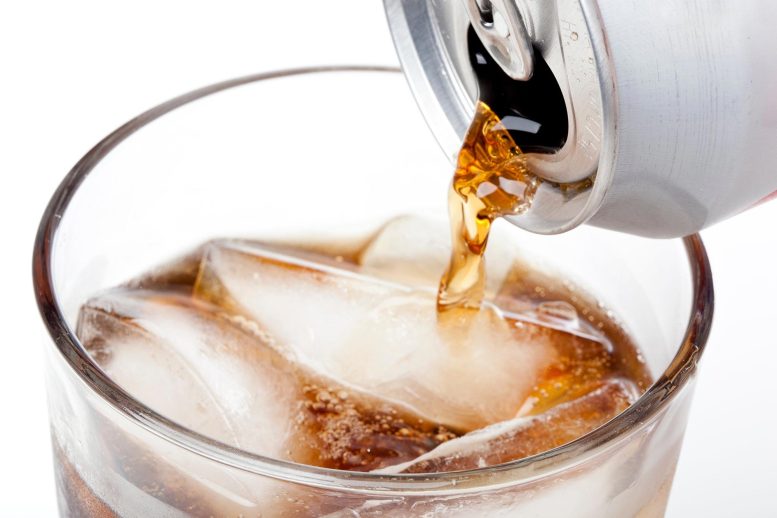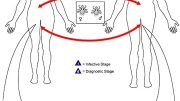
Daily consumption of diet soft drinks may increase the risk of vascular events, including stroke, heart attack, and vascular death, according to a recent study.
By analyzing data from 2,564 participants, a new study by epidemiologists in the Miller School’s Department of Neurology shows that people who drink diet soft drinks on a daily basis may be at increased risk of suffering vascular events, while consumption of regular soft drinks and a more moderate intake of diet soft drinks do not appear to be linked to a higher risk of vascular events.
People who drink diet soft drinks on a daily basis may be at increased risk of suffering vascular events such as stroke, heart attack, and vascular death, according to a new study led by Hannah Gardener, Sc.D., epidemiologist in the Miller School’s Department of Neurology.

Hannah Gardener, Sc.D. Credit: University of Miami’s Miller School of Medicine
In contrast, Gardener and her colleagues at UM and Columbia University Medical Center in New York found that consumption of regular soft drinks and a more moderate intake of diet soft drinks do not appear to be linked to a higher risk of vascular events. Their study, “Diet soft drink consumption is associated with an increased risk of vascular events in the Northern Manhattan Study,” was published online in the Journal of General Internal Medicine on January 30.
In the current climate of escalating obesity rates, artificially sweetened soft drinks are marketed as healthier alternatives to sugar-sweetened beverages, due to their lack of calories. However, the long-term health consequences of drinking diet soft drinks remain unclear.
Gardener and her team examined the relationship between both diet and regular soft drink consumption and risk of stroke, myocardial infarction (heart attack), and vascular death. They analyzed data from 2,564 participants in the NIH-funded Northern Manhattan Study, which was designed to determine stroke incidence, risk factors, and prognosis in a multiethnic urban population.
The researchers looked at how often individuals drank soft drinks – diet and regular – and the number of vascular events that occurred over a ten-year period.
After taking into account pre-existing vascular conditions, including body mass index, diabetes, high cholesterol, and hypertension, they found that individuals who drank diet soft drinks daily were 43 percent more likely to have suffered a vascular event than those who didn’t drink any. Those who drank diet soft drinks irregularly – between one a month and six a week – and those who chose regular soft drinks were not more likely to suffer vascular events.
“Our results suggest a potential association between daily diet soft drink consumption and vascular outcomes,” Gardener said. “However, the mechanisms by which soft drinks may affect vascular events are unclear. There is a need for further research before any conclusions can be drawn regarding the potential health consequences of diet soft drink consumption.”
Reference: “Diet Soft Drink Consumption is Associated with an Increased Risk of Vascular Events in the Northern Manhattan Study” by Hannah Gardener ScD, Tatjana Rundek MD PhD, Matthew Markert MS, Clinton B. Wright MD, MS, Mitchell S. V. Elkind MD, MS and Ralph L. Sacco MD, MS, 27 January 2012, Journal of General Internal Medicine.
DOI: 10.1007/s11606-011-1968-2
Gardener’s UM co-authors on the study were Tatjana Rundek, M.D., Ph.D., professor of neurology; Matthew Markert, Ph.D., a student in the M.D./Ph.D. program, Clinton B. Wright, M.D., M.S., associate professor of neurology and scientific director of the Evelyn F. McKnight Brain Institute, and Ralph L. Sacco, M.D., M.S., Olemberg Family Chair in Neurological Disorders and Leonard M. Miller Professor of Neurology, Epidemiology and Human Genetics.








Be the first to comment on "Researchers Find Possible Link Between Diet Soda and Vascular Risks"